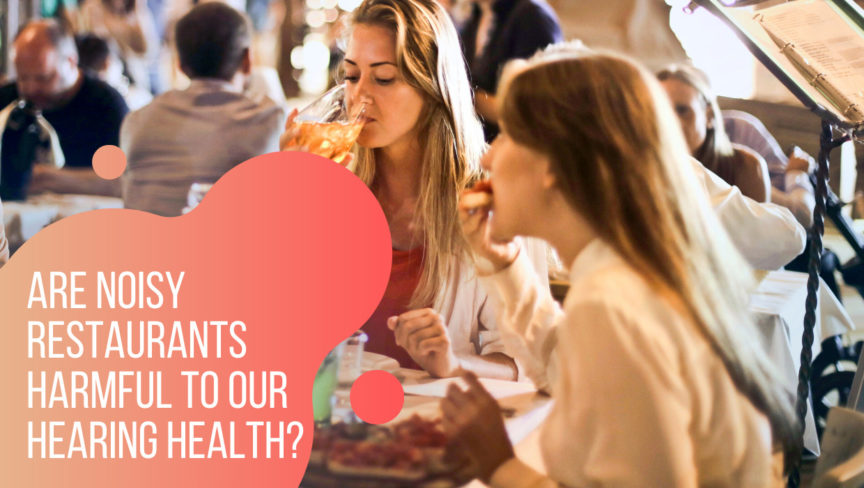- The Harm of Smoking to the Ears - April 9, 2025
- The Importance of Exercise for Hearing Health - March 11, 2025
- Movie Theaters and Hearing Aids - February 13, 2025
We regularly hear from people that fun activities like eating out at restaurants have become strained because hearing loss makes it hard to keep up with conversation. Restaurants are one of the most consistently problematic locations for those with hearing loss – even when they are using hearing aids.
It turns out, restaurants aren’t helping. New investigations and reporting are finding dangerously high-volume levels at many restaurants, especially new eateries, meaning that not only are restaurants one of the hardest places to hold a conversation, they also may be contributing to hearing damage!
Buzzing or Blasting?
Over the decades, restaurant design has opted away from interior elements that naturally dampen sounds, like curtains and carpet, towards more austere interiors, often with industrial materials that amplify noise. They have also intentionally trended towards more noise, often blasting music on top of clattering dishes and ricocheting voices.
Part of this tendency towards loudness is the desire to make a restaurant seem like a “happening” spot and the notion that noise conveys energy and popularity. More is not always better, however, and a wave of restaurant patrons are making the point that extreme noisiness isn’t a pleasant way to eat and makes hanging out with friends difficult. While a dead quiet restaurant may be as unsettling as an overly loud spot may be overwhelming, there is a lot of room in the middle for places that balance an energetic atmosphere with good sound design.
Workplace Hazards
A loud work environment can be a hazard for those who work there every day and restaurants and venues are no exceptions. Kitchen and waitstaff at a restaurant may be exposing themselves to dangerous noise levels that can cause hearing damage. OSHA defines a noise hazard as 85 decibels (dB) or above sustained for 8 hours or longer, the threshold at which hearing loss begins to occur. Louder noises than 85 dB cause hearing damage even quicker.
A common way to test if you are in an environment that is safe for your hearing is whether or not you can carry on a conversation without raising your voice. If you or your companions have to raise your voices to be heard, chances are your surroundings are registering over 85 dB of noise. Smartphones make testing your surroundings accurately easier than ever, with a variety of decibel reading apps that can give you a fuller picture of the noise around you.
What You Can Do
When it comes to dining out in America, changes can happen quickly if customers demand it. Most restaurants want your dining experience to be pleasurable, so if their noise levels are a turn off, let them know. If you are comfortable talking about your hearing loss, let them know that their restaurant poses special difficulties for you as a diner.
On your end, how do you protect your hearing and enjoy a great meal? There are several ways to optimize eating out. We suggest trying the SoundPrint app, a crowd-sourced decibel monitoring map that can help you find great food alongside great noise levels. When there is a spot where you love the food but it is simply too noisy, try to go during off-peak hours, before the noise gathers steam. When you are trying a new spot, scope it out before you go there with friends to see how noisy it is and whether you’ll be able to enjoy conversation along with your food.
There are some secrets to hearing better in a noisy, crowded space that everyone should know. Try to locate yourself near the corners and walls of the space. Sitting in the middle of a room makes determining sound direction very difficult. If available, a booth often offers better acoustics than a table, especially if the booths are tall and cushioned, which will act to dampen the noise around you.
Never sit near the kitchen if you can help it. There is no way around the disruptive sounds of a busy kitchen when you are seated near to it. Pots and pans, silverware and glassware all cause sharp noises that can distract you from the conversations you want to hear. Sit with your back to a wall and if you are eating with a group of people try to position yourself toward the middle of the seating so you have the best chance of hearing what everyone says.

